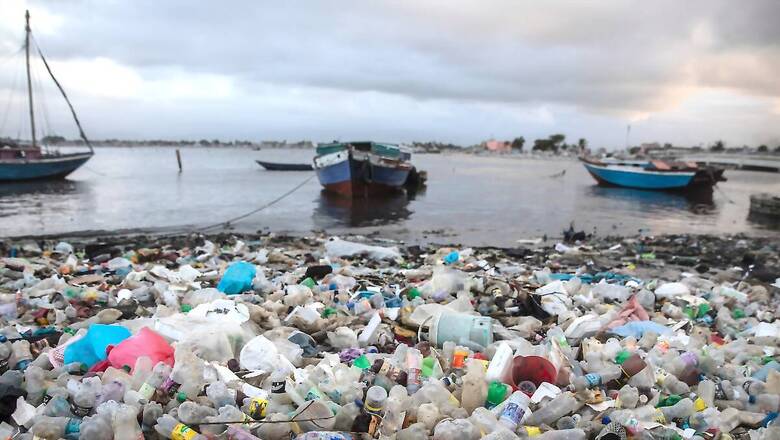
views
Plastic, the ubiquitous material of modern life, has woven itself into the fabric of our daily existence. Globally, over 150 million tonnes of plastic are produced each year, catering to a wide array of applications – from packaging and clothing to toys and industrial products. Yet, as its production soars, so does the monumental problem of plastic pollution.
According to a report by the Federation of Indian Chambers of Commerce and Industry (FICCI), India stands to lose a staggering $133 billion worth of material value tied to plastic packaging by 2030. A significant chunk of this loss, $68 billion, is attributed to uncollected plastic packaging waste.
A severe ecological challenge
The grave concern lies in plastic’s remarkable durability and resistance to decomposition. Its persistence in the environment poses a severe ecological challenge. Alarmingly, less than 10% of global plastic production is effectively recycled, leaving the remainder to languish in landfills or be incinerated, releasing toxic compounds into the atmosphere.
India, too, grapples with this crisis. According to the Central Pollution Control Board (CPCB), the country generates approximately 9.4 million tonnes of plastic waste annually, translating to a staggering 26,000 tonnes per day. A mere 5.6 million tonnes of this plastic waste is recycled daily, while a significant 3.8 million tonnes remain uncollected or littered, further exacerbating the pollution problem.
The innovative solutions
However, amid the looming threat of plastic pollution, India is pioneering innovative solutions to combat this menace head-on. Various companies have adopted eco-friendly practices by discontinuing plastic overwraps for products. Soap wrappers and shampoo sachets are now crafted from recyclable materials, and soap stiffeners and cartons are entirely plastic-free. Liquid bottles incorporate 50% recycled PET, while others use biodegradable actives in its composition and recycled plastic in its packaging.
Similarly, some small companies, too, are playing their part. The shining example in this case is the manufacturing of cutlery and utensils made entirely from fallen areca leaves which offer an eco-friendly alternative to conventional plastic, polymer, and paper products. The process for manufacturing eco-friendly utensils is simple and natural. These areca leaves are collected from farms and then cleaned and soaked in water.
With the help of specialised machines, the leaves are then dried in the shade, and moulded into various shapes. Like any other plant matter, these utensils and cutlery decompose within 60 days. Also the waste generated during the production can be repurposed into biofuel bricks, vermicompost, and dry animal feed, further reducing environmental impact.
Government initiatives
The Government of India in the past few years has taken several proactive steps to address the issue of plastic pollution. For example, in 2022, the Ministry of Housing and Urban Affairs launched the nationwide “Clean and Green” campaign. This campaign engaged Urban Local Bodies across the country to encourage people to not use single-use plastics.
Last year, the Union Environment Ministry also released the Plastic Waste Management (Second Amendment) Rules, 2022. These rules press for the phase-out of various single-use plastic items and encourage use of thicker plastic carry bags.
These initiatives, whether community-driven or government-led, mark a significant step towards a pollution-free India. However, this is just seen as a beginning. To eradicate this menacing plastic pollution, the country needs to develop comprehensive solutions and a waste management infrastructure that engages all stakeholders.
Azmi Khan is a social entrepreneur building a sustainable fashion brand to create livelihood opportunities for marginalized women.



















Comments
0 comment